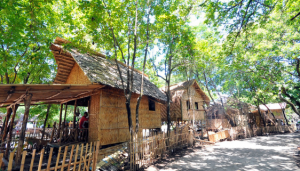The booming population and urbanization pose several threats to food security and waste management.
This is what urban container gardening (UCG) seeks to address where agriculture is made possible without the need for vast farming lands.
Jojo Rom, urban container gardening advocate, said the farming practice will allow urban households to grow organic homegrown produce and slash their monthly budget for food.
More than that, UCG is also deemed as a solution to the rapid contraction of landfills. This practice targets to reduce 80% of waste materials that end up at landfills through composting household wastes, which in turn produce organic fertilizers that may be applied to the container-grown plants.
Furthermore, the reduction of household wastes may lessen greenhouse gases.
“One doesn’t need to be an agriculturist or environmentalist to resolve climate change in a household level,” Rom said.
UCG may also be an income-generating activity for every grower. Rom has plans to start a mobile organic market by all UCG practitioners.
As a concept that covers diversified societal issues, food security, health and nutrition, waste management, agribusiness, among others, Casa Katreena, along with its partners, conceptualized the Urban Container Gardening: Hands-on Seminar Workshop with Jojo Rom.
This event is scheduled on July 14-15, 2018 at Walk in Alley, C. Bangoy Street (Ponciano Reyes Street in front of Kapitan Tomas Monteverde Sr. Central Elementary School).
With aims to impart to its participants a simplified description of the science of urban agriculture, the event is deemed as a prelude to larger UCG events in and outside Davao City like in Cebu, Pampanga, Batangas, etc. to help establish a more democratized agriculture throughout the country.
The detailed two-day seminar-workshop will focus on container preparation and designing, basic guide to sustainable home farming, organic bio-solid/ liquid fertilizer and pesticide preparation, physical and chemical soil composition, planting and transplanting techniques, home farm planning exercise, and crop care and maintenance.
With a registration fee of P4,500 for the two days, participants can avail of the starter kit, lunch and snacks, two days hands-on experience, and a Certificate of Completion.



